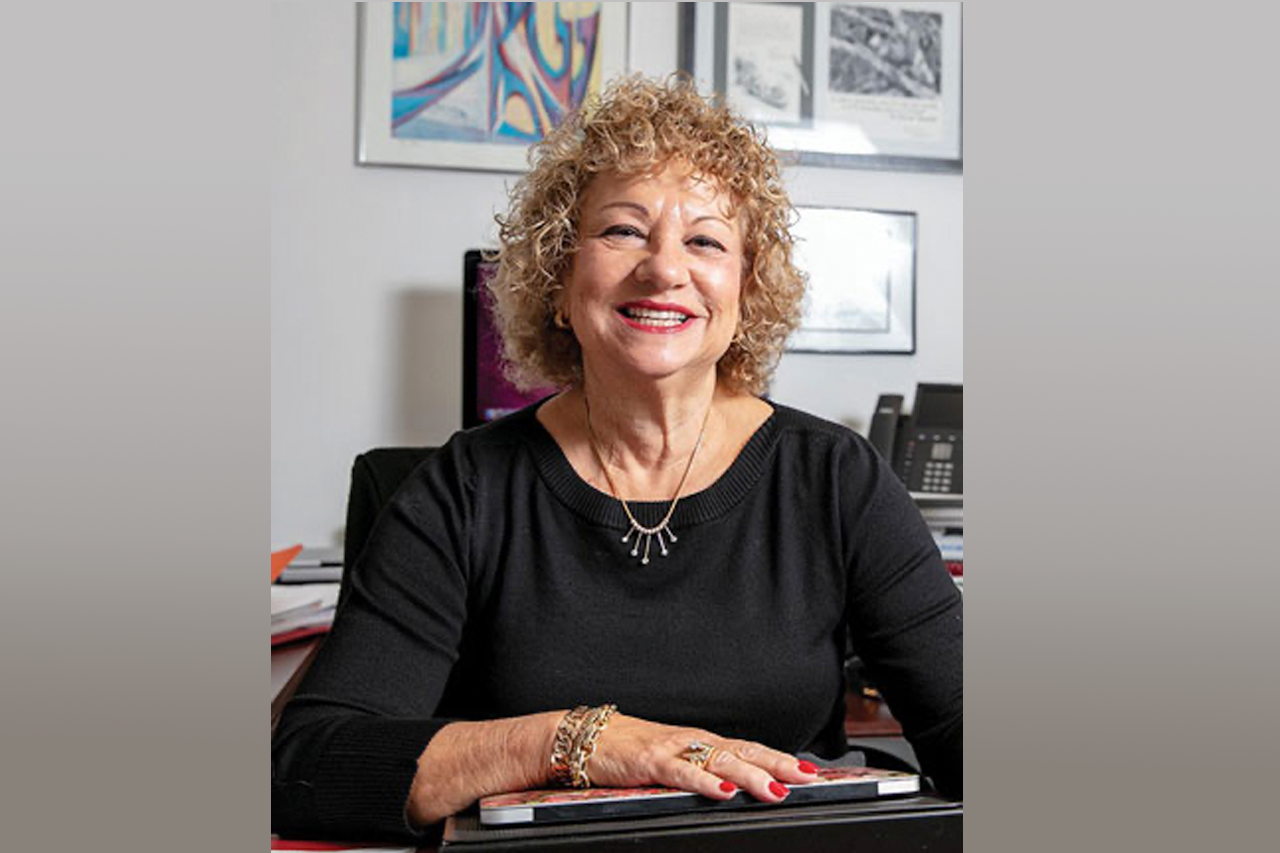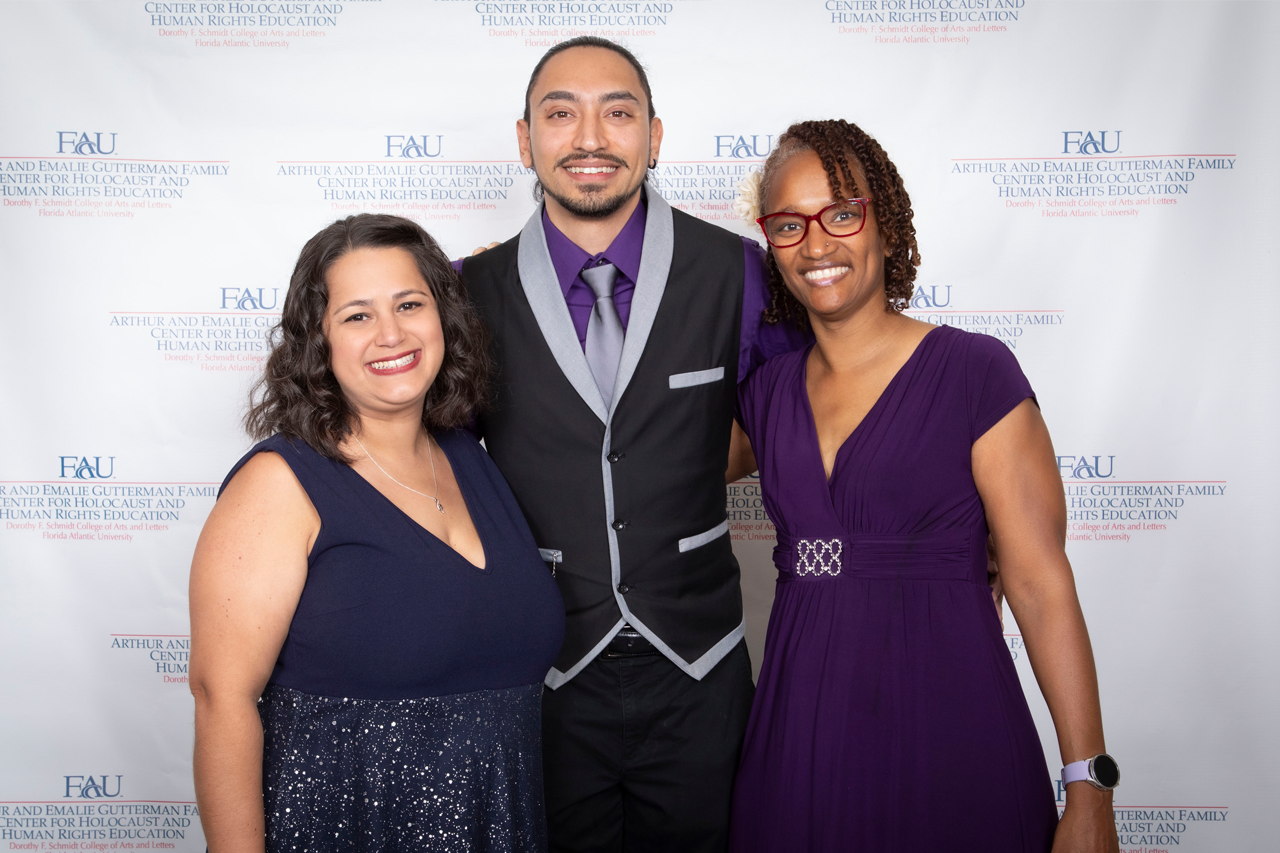Remarks from Gutterman Educators - Judy Hainsworth
Tuesday, May 05, 2020
Thank you, Mr. Gutterman, for your wisdom, generosity and this opportunity to make a difference to my student’s lives. And to Linda Medvin, for placing her faith in me. Leslie, you have given me your insight, friendship, encouragement and expertise. There are no words.
To teach Holocaust is to teach humanity at its worst, and humanity at its best; it is a journey to compassion, truth, and awareness. To see through the eyes of children is to see in a new way. Connection opens the eyes. What fills the eyes, fills the heart. And with that, comes the power to make a difference. So I asked my one hundred and seventy students, “what do you need me to bring back to you. What are the connections that will fill your eyes and fill your hearts? These are a few of their responses.
“Take “real” pictures,” says Joey. “Not professional or posed. I want to see through your eyes.”
“Experience everything deeply. Explore. Take pictures of stone, walls, graves. Leave a stone so they know we remember.”
“Stand at the wall in Warsaw. The one the little kids snuck over. Stoop down to the height of a child. Take a picture.” That’s what 6’2” Alfredo want to see.
“Are the camps haunted. Are there echoes?”
“The way you always help us comprehend what the numbers mean,” said Sofia, “like when you made us figure out what 6,000,000 really is… 1200 times the population of our school, or 120,000 school buses filled with kids. I want to know the sizes – of the ghetto, of everything. I want numbers to be more than just math.”
“Can you sense the millions of lost souls?” Ahmed asks.
“Where is the sun? Is it ever sunny in Poland? The films and pictures are always so grey.”
“Wherever you go, I want you to meditate the way we do in class. Write down what you are feeling,” says Abby.
“Give us the gift of insight.”
“Take pictures of fences and barbed wire,” says Eduardo. “We do take our freedom for granted, don’t we?”
“In the pictures, it always looks like winter. The prisoners always look so cold,” observes Monika. “Is it cold in the summer?”
“My boyfriend is Jewish,” says Felipe. “Keep a video journal, but I want more than words. I need more than words.”
Joey, the defensive tackle, tells me to: “Write poetry, like the ones you wrote when you were young and went to Dachau.”
“What does it feel like to touch barbed wire?” asks Sam. “I want to know the textures of everything. What does the air taste like?”
“Look for butterflies, if there are any.”
“Pictures of food. Eat Fluden, like Gusta’s mother made. Is it as sweet?” asks Sam, who’s applying to the CIA (not the one in Virginia, the one that trains chefs).
“I want to see every detail you see, no matter how heart-wrenching or grim. But I also want to see joy, if there is any.”
“Start a blog that we can read back here in Florida. That way we can experience it almost at the same time you do.”
“Write a cinquain, a haiku and a free-form every day. Write sad ones. Write happy ones,” says Ana who loves poetry.
“What does it feel like to walk under the Gate. The one at Auschwitz?”
“Make history come to life for me.”
Sean, one of my freshmen, wants me to strap a go-pro on my shoulder, “maybe get a skateboard or skates. I want raw, uncut, authentic Mrs. H. footage.”
Well, maybe the Gopro… think I’ll skip the skateboard.
Connection between myself and my students, present and future. That is what I want to build when I travel across the world and back in time. Where hands touch, so I will stand beneath a sun that can never warm the chill away, but the eye never forgets what the heart has seen.


